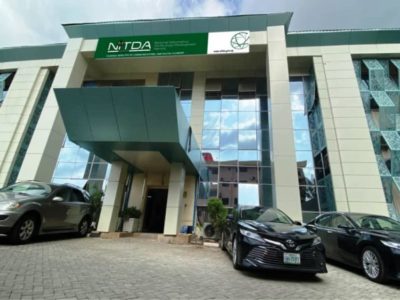Africa stands at the forefront of a revolutionary shift in global health, driven by artificial intelligence (AI) and data science, according to a report released today from the Science for Africa Foundation (SFA Foundation), African institutions and research councils.
RELATED: From Artificial Intelligence to Artificial Innovation: My predictions
The report is a first of its kind to comprehensively examine national-level perspectives across Africa on AI and data science for global health. The landscape presents an unprecedented view into the potential to improve AI governance in Africa to reduce the risk and stop the perpetuation of inequity.
Identifying policy gaps and opportunities in AI for global health
Titled “Governance of Artificial Intelligence for Global Health in Africa”, the report is produced through the SFA Foundation’s Science Policy Engagement with Africa’s Research (SPEAR) de la Fondation SFA. programme as a culmination of a year-long effort involving convenings across Africa’s five regions, policy analysis and extensive surveys to identify policy gaps and opportunities in AI and data science for global health.
Grounded in consultations across 43 African countries, the report incorporates insights from over 300 stakeholders, ensuring a comprehensive and inclusive approach to its findings.
“The global AI governance framework remains ill-suited to Africa’s unique needs and priorities,” said Prof. Tom Kariuki, Chief Executive Officer of the SFA Foundation. “
Our report on AI in global health and data sciences champions a shift towards frameworks that reflect Africa’s context, ensuring ethical, equitable, and impactful applications of AI not only for our continent’s health challenges, but also to advance global health.”
Key findings and opportunities
The report identifies key trends, gaps, and opportunities in AI and data science for health across Africa:
- Increasing national investments: Countries including Mauritius, Nigeria, Malawi, Ethiopia, Ghana, Rwanda, Senegal, and Tunisia have launched national AI programmes, while at least 39 African countries are actively pursuing AI R&D. Initiatives such as Rwanda’s Seed Investment Fund and Nigeria’s National Centre for AI and Robotics illustrate promising investments in AI startups.
- Need for health-specific AI governance: Despite growing interest, there is a critical gap in governance frameworks tailored to health AI across Africa. While health is prioritised in AI discussions, specific frameworks for responsible deployment in health are still underdeveloped.
- Inclusive AI policy development: Many existing AI policies lack gender and equity considerations. Closing these gaps is essential to prevent inequalities in access to AI advancements and health outcomes.
Enhancing policy frameworks to leverage AI
“Incorporating AI into healthcare is not just about technology—it is about enhancing our policy frameworks to ensure these advancements lead to better health outcomes for all Africans,” added Dr Uzma Alam, Programme Lead of the Science Policy Engagement with Africa’s Research (SPEAR) programme.
- There are existing policy frameworks on which to build and/or consolidate governing of responsible AI and data science: At least 35 African countries have national STI and ICT as well as health research and innovation policy frameworks that contain policies applicable to the development and deployment of AI and data science.
- There is a surge in African research on health AI and data science (big data): raising the need for equitable North-South R&D partnerships.
Recommendations and way forward
The report is expected to act as a catalyst for integrating AI into health strategies across the continent, marking a significant step forward in Africa’s journey toward leadership in global health innovation by calling for:
- Adaptive and Inclusive AI Governance: The report calls for the integration of diverse perspectives spanning gender, urban-rural dynamics, and indigenous knowledge into AI health governance frameworks. It highlights the need for adaptive policies that balance innovation with equitable access, while leveraging regional collaboration and supporting the informal sector.
- Innovative Funding and African Representation: Recognising the potential of local knowledge and practices, the report advocates for creative funding models to bolster AI research and development. It emphasises connecting the informal sector to markets and infrastructure to encourage grassroots innovation.
- The Reinforcement of Science Diplomacy: To position Africa as a key player in global AI governance, the report recommends investing in programmes that align AI technologies with Africa’s health priorities. It also stresses the importance of amplifying Africa’s voice in shaping international standards and agreements through robust science-policy collaboration.
- The Bridging of Gendered digital divide: To bridge the gendered digital divide in Africa. targeted initiatives are needed to address regional disparities and ensure gender inclusivity in the AI ecosystem. It’s essential to focus on programs that build capacity and improve access to resources.
Leveraging AI to address current capacity constraints
“The report clearly outlines pathways for leveraging AI to bridge gaps and overcome current capacity constraints, while strengthening Africa’s role as a leader in shaping global health policy,” said Dr Evelyn Gitau, Chief Scientific Officer at the SFA Foundation.
“This initiative showcases Africa’s potential to lead, innovate, and influence the global health ecosystem through AI.
“We envision a world where AI advances health outcomes equitably, benefiting communities around the world. The Science for Africa Foundation’s report brings this vision to life by providing clarity on policy frameworks of AI and data science in global health. This empowers African voices to shape AI policy – not only directing healthcare innovation but setting a precedent for inclusive AI governance across sectors.” – Vilas Dhar, President of the Patrick J. McGovern Foundation.































